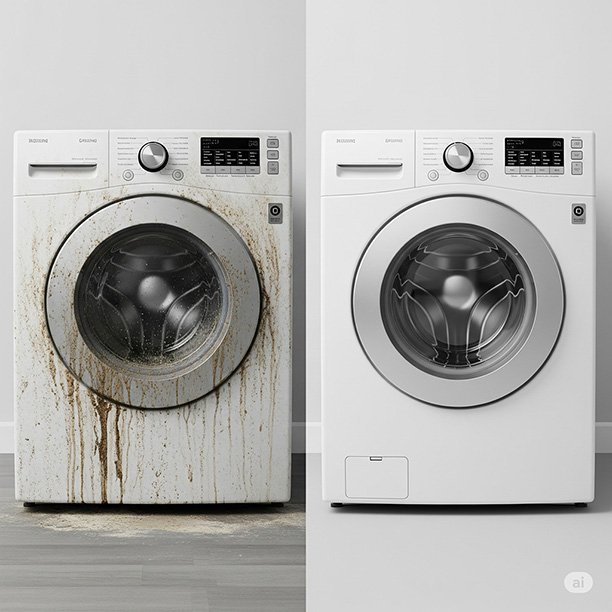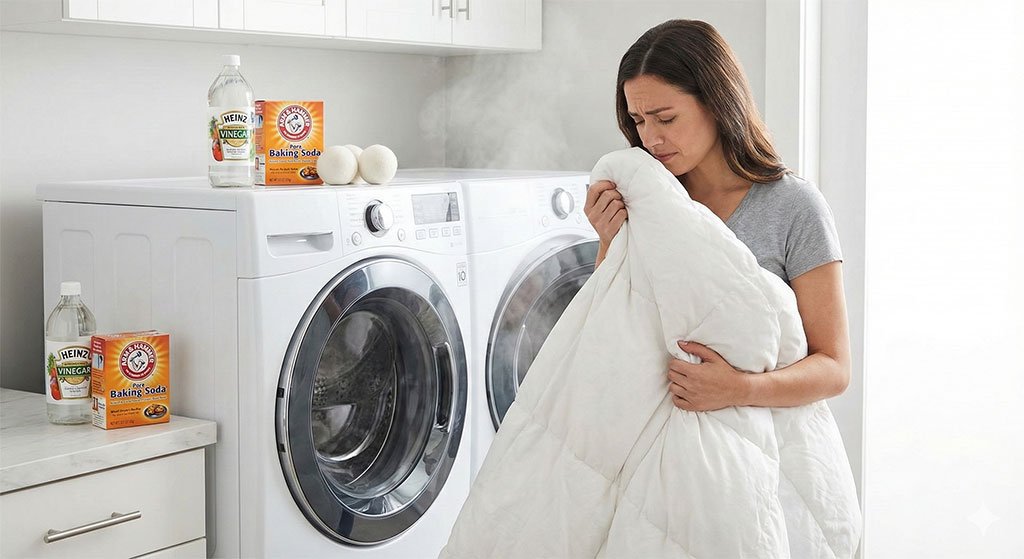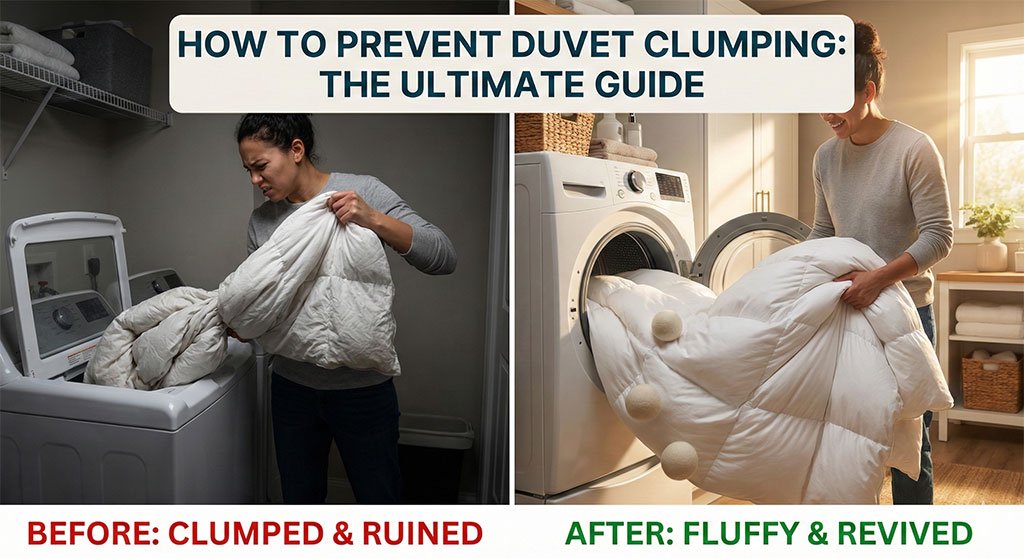High-efficiency (HE) washing machines are popular for their water and energy savings. They promise a greener laundry routine and lower utility bills. But these modern marvels can come with their own set of challenges. This article will explore the common problems with high efficiency washers faced by the owners, from annoying smells to unexpected repairs.
Table of Contents

Difference of HE
Traditional washing machines fill their tub with water, submerging clothes completely. They often use a central agitator to scrub away dirt. HE washers, on the other hand, use a different approach. They use significantly less water, relying on a tumbling action (in front-loaders) or a wash plate (in top-loaders without a central agitator) to move clothes through a small amount of water. This design is key to their efficiency but also the root of many of their unique problems.
The Stink: Odor and Mold Issues
One of the most frequent complaints about HE washers is a persistent, musty smell. This odor often comes from mold and mildew growth inside the machine.
Why the Bad Smell?
- Low Water Levels: HE washers use less water, which means detergent residue and dissolved dirt can build up more easily in the drum, hoses, and especially the rubber gasket around the door (in front-loaders). This moist residue is a perfect breeding ground for mold and bacteria.
- Airtight Seals: Front-loading HE washers have tightly sealed doors to prevent leaks during their tumbling action. This seal can trap moisture inside the drum after a wash cycle, creating a damp environment where mold thrives.
- Wrong Detergent: Using too much detergent or a non-HE detergent can create excessive suds. These suds don’t rinse away completely in the low water levels of an HE machine, leaving behind a sticky film that attracts mold and mildew.
Combating the Odor
Regular cleaning is crucial for HE washers. This includes:
- Wiping the Gasket: After each use, wipe down the rubber gasket around the door with a clean cloth. Pay extra attention to the folds and crevices where water can collect.
- Leaving the Door Ajar: When not in use, leave the washer door slightly open to allow air circulation and prevent moisture from getting trapped.
- Running Cleaning Cycles: Many HE washers have a “Tub Clean” or “Sanitize” cycle. Use this monthly with a washing machine cleaner, white vinegar, or baking soda.
- Cleaning Detergent Dispensers: Residue can build up in the detergent and fabric softener dispensers. Clean these regularly.
Cleaning Performance: Are Clothes Really Clean?
Some HE washer owners report that their clothes don’t feel as clean as they did with traditional machines, or that stains are not removed effectively.
Factors Affecting Cleaning
- Less Water: While HE detergents are designed to work in less water, the sheer volume of water in traditional machines could sometimes help flush away more dirt.
- Detergent Type and Amount: Using the wrong type of detergent (non-HE) or too much detergent can hinder cleaning. Non-HE detergents produce too many suds, which can “cushion” clothes and prevent proper tumbling or agitation, leading to less effective cleaning and poor rinsing.
- Load Size: Overloading an HE washer can prevent clothes from tumbling or moving freely, leading to uneven cleaning.
- Stains: Stubborn stains might require pre-treatment or specialized cycles in an HE washer.
Long Cycle Times: Waiting for Laundry
HE washer cycles often take longer than traditional washer cycles.
Why Cycles are Longer
- Low Water Levels: Because they use less water, HE washers need more time to agitate and rinse clothes thoroughly to ensure all detergent is removed.
- Sensor Technology: Many HE washers use sensors to detect load size and adjust water levels and cycle times accordingly. This can add time as the machine “thinks.”
- Extra Rinses: If too many suds are detected (often due to using non-HE detergent or too much HE detergent), the washer may automatically add extra rinse cycles, further extending the wash time.
Vibration and Noise: Shakes and Rumbles
HE washers, especially front-loaders, can sometimes experience excessive vibration and noise during the spin cycle.
Causes of Vibration
- Unbalanced Loads: Unevenly distributed laundry can cause the drum to become unbalanced, leading to strong vibrations.
- Improper Installation: If the washer is not perfectly level, it can shake and vibrate.
- Worn Components: Over time, shock absorbers or suspension springs can wear out, leading to increased vibration.
- Flooring: The type of flooring can also affect vibration. Weak or uneven floors can amplify shaking.
Solutions for Vibration
- Level the Machine: Use a level to ensure the washer is properly balanced on all four feet. Adjust the leveling feet as needed.
- Distribute Loads Evenly: Before starting a cycle, make sure clothes are evenly distributed in the drum. Avoid washing a single heavy item by itself.
- Anti-Vibration Pads: Consider placing anti-vibration pads under the washer’s feet.
Cost of Ownership and Repairs
While HE washers boast energy savings, their initial purchase price can be higher, and certain repairs can be more complex and costly.
Repair Challenges:
- Complex Electronics: Modern HE washers are packed with sensors and electronic control boards. Diagnosing and repairing issues with these components can be expensive and often requires a professional technician.
- Specialized Parts: Some HE washer parts are unique and may be more expensive or harder to find than parts for traditional machines.
- Mold-Related Repairs: Severe mold issues might require replacement of the door gasket or other components if the mold cannot be cleaned.
Table: Common HE Washer Problems and Solutions
Problem | Common Causes | Solutions |
Musty Odor/Mold | Low water, trapped moisture, wrong detergent | Regular cleaning, leave door open, HE detergent, cleaning cycles |
Poor Cleaning | Wrong detergent, overloading, low water | Use HE detergent, proper load size, pre-treat stains |
Long Cycle Times | Low water, sensor adjustments, excess suds | Use correct HE detergent amount, avoid overloading |
Excessive Vibration | Unbalanced loads, uneven leveling, worn parts | Level machine, balance loads, anti-vibration pads |
Costly Repairs | Complex electronics, specialized parts | Regular maintenance, professional diagnosis for complex issues |
HE Washer Maintenance: Your Best Defense
Preventing problems with your HE washer is often easier than fixing them. A consistent maintenance routine can save you headaches and money in the long run.
- Always Use HE Detergent: Look for the “HE” symbol on your detergent. These detergents are low-sudsing and designed to work effectively with less water. Using regular detergent can cause excessive suds, leading to residue buildup, odors, and even error codes.
- Measure Detergent Carefully: Do not eyeball the amount of detergent. Follow the manufacturer’s recommendations for your detergent and load size. More is not always better with HE machines.
- Wipe Down the Door Gasket: After every wash, take a few seconds to wipe the rubber seal around the door of front-load washers. This removes trapped moisture, lint, and residue.
- Leave the Door Ajar: After your last load of laundry for the day, leave the washer door open. This allows the drum to air out and dry completely, preventing mold and mildew growth.
- Run a Cleaning Cycle Monthly: Most HE washers have a dedicated “Tub Clean” or “Sanitize” cycle. Use this cycle once a month with a washer cleaner, white vinegar, or baking soda to flush out residue and odors.
- Clean Dispenser Drawers: Remove and clean the detergent and fabric softener dispensers regularly. Residue can build up here.
- Check and Clean Drain Pump Filter: Some front-load washers have a small filter, often located at the bottom front of the machine, which can trap lint and debris. Refer to your owner’s manual for instructions on how to clean this.
- Avoid Overloading: Do not pack your washer too tightly. Clothes need room to tumble or agitate for proper cleaning and rinsing. An overloaded machine also puts strain on the motor and can lead to vibrations.
- Remove Clothes Promptly: Do not leave wet laundry sitting in the washer for extended periods. This contributes to mold and mildew growth.
FAQ
Why does my HE washer smell so bad?
The smell usually comes from mold and mildew growing in the damp, enclosed spaces of the machine. This can be caused by low water levels leaving behind residue, trapped moisture in the door gasket, or using the wrong type or too much detergent.
Can I use regular detergent in my HE washer?
No, you should only use detergents marked with the “HE” symbol. Regular detergents produce too many suds for HE machines’ low water levels. This can lead to excessive suds, residue buildup, poor rinsing, and even machine malfunction.
Why do HE washer cycles take so long?
HE washers use less water, so they need more time to tumble and rinse clothes effectively. Sensors may also adjust cycle times based on load size and suds levels. Excess suds can trigger extra rinse cycles, further extending the wash time.
Are HE washers truly energy efficient if cycles are longer?
Yes, despite longer cycles, HE washers are still more energy efficient overall. They use significantly less water, especially heated water, which is the biggest energy consumer in laundry. They also spin clothes faster, reducing drying time and energy use in the dryer.
How often should I clean my HE washer?
It’s recommended to wipe down the door gasket after every use and leave the door ajar. Run a dedicated “Tub Clean” or “Sanitize” cycle with a washer cleaner, vinegar, or baking soda at least once a month to prevent buildup and odors.
Bottom Line
High-efficiency washing machines offer clear benefits in terms of water and energy savings. However, they demand a slightly different approach to laundry care than traditional machines. By understanding their unique characteristics and implementing simple maintenance practices, you can avoid common problems with high efficiency washers like odors, poor cleaning, and excessive vibrations. With proper use and care, your HE washer can be a reliable and eco-friendly workhorse for years to come.


